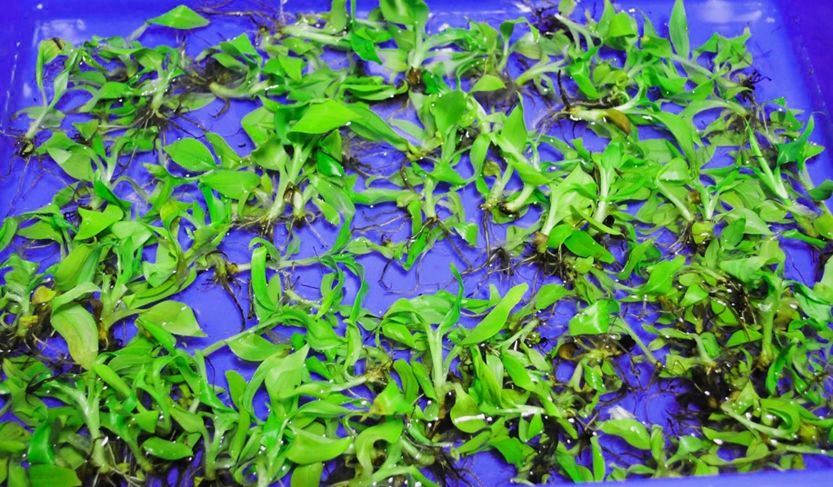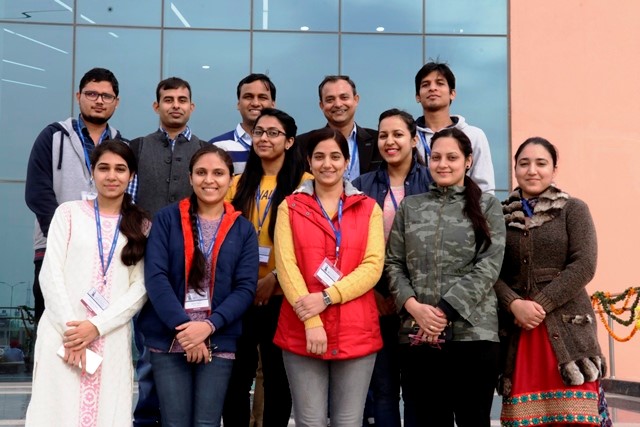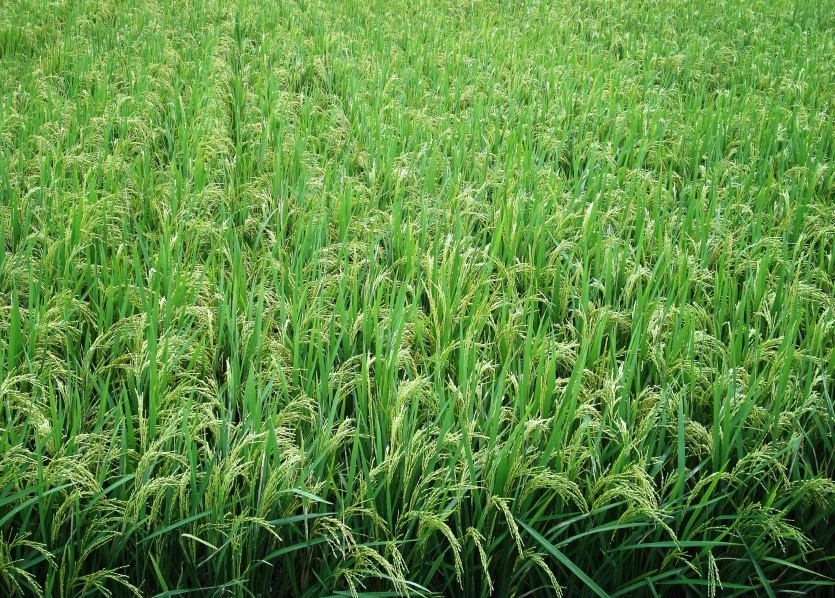
Indian Scientists Use CRISPR to Edit Banana Genome
- News
- 3.9K
Banana is a popular fruit crop and in India is its largest producer globally. It is the fourth most important food crop after wheat, rice, and corn in terms of gross value of production. Now Indian scientists have used latest gene-editing techniques to modify the banana genome, for the first time.

Image Dr. Siddharth Tiwari (second from top right) with the research team at NABI
The use of gene editing technique – CRISPR/Cas9 – in banana could serve as a useful tool that can be deployed for improving nutritional quality, agronomically important traits as well as pathogen resistance in banana, scientists have said.
The research has been done by a group of Indian researchers at the National Agri-Food Biotechnology Institute, Mohali. The study results have been published in the journal Functional & Integrative Genomics. This is the first ever research study published on genome editing in any fruit crops from India, according to Dr. Siddharth Tiwari, who led the research team.
The CRISPR/Cas9 technology lets scientists remove or replace specific parts of DNA with precision. CRISPR stands for “Clustered Regularly Interspaced Short Palindromic Repeats” which basically finds the target DNA. Associated with it is Cas9 which Stands for “CRISPR Associated protein 9” which is basically an endonuclease or a sort of biological scissors which edit DNA accurately.
Using this technique, researchers created a mutation in an enzyme – phytoene desaturase (RAS-PDS) of a banana variety called Rasthali. They first isolated two genes in this enzyme – RAS-PDS1 and RAS-PDS2 – and confirmed enzyme activity using protein sequence analysis. Then a guide RNA was used to target the conserved region of the two genes and later transferred them in embryogenic cell cultures of Rasthali.
DNA sequencing of plants thus generated confirmed 59% mutation frequency in the genes which were ‘edited’. These mutations caused premature termination of protein synthesis. Decreased chlorophyll and total carotenoid contents were detected in mutant lines, indicating that functions of the genes were disrupted.
“We would like to exploit the genome editing tool for development of nutritionally improved transgene-free Indian banana variety. The selected events of the biofortified banana crop would be analyzed for nutritional, bioavailability and agronomical performance with the appropriate collaborative efforts,” Dr. Tiwari told India Science Wire.
According to Dr. Tiwari, this approach for the development of a non-transgenic variety of banana could be more beneficial in addressing regulatory and biosafety challenges for commercial cultivation of the genetically improved banana crop.
The research group is focused on the metabolic engineering of staple crops like banana and wheat for nutritional enrichment. “Most of the staple food crops consumed in developing countries are insufficient to meet minimum nutritional requirements. As a result, vitamin A deficiency remains prevalent in many developing countries. Keeping this in mind, we started our research on the pro-vitamin A (beta-carotene) biofortification of banana as a promising, cost-effective and sustainable approach,” explained Dr. Tiwari.
The research team included Navneet Kaur, Anshu Alok, Shivani, Navjot Kaur, Pankaj Pandey and Praveen Awasthi. The project is funded by Biotechnology Industry Research Assistance Council (BIRAC).(India (India Science Wire)
By Yogesh Sharma
Journal Article http://bit.ly/2GdUK6i


